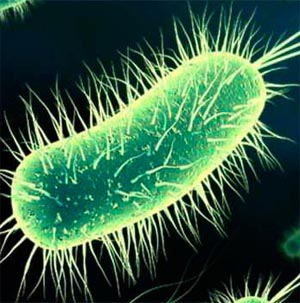 The promise of a world without disease has been replaced by warnings of evermore virulent pathogens, created by the very drugs that were supposed to save us.
The promise of a world without disease has been replaced by warnings of evermore virulent pathogens, created by the very drugs that were supposed to save us.
Excuse me for bragging, but I’m very proud of this. My new article, Superbugs in the Anthropocene, is the lead article in this month’s issue of Monthly Review.
Superbugs in the Anthropocene continues my discussion of metabolic rifts, this time focusing on Big Pharma’s disruption of bacterial evolution, a profit-driven assault that kills thousands of people every day and is undermining the achievements of modern medicine.
Unlike many other journals, Monthly Review makes its articles available to readers by posting them online in the weeks following print publication. Superbugs in the Anthropocene is now available, in full, on the MR website. Click here to read it now.
Here’s an excerpt …
Superbugs in the Anthropocene:
A Profit-Driven Plague
by Ian Angus
Scarcely a day passes without more news of people contracting infections or infectious diseases that cannot be cured by the strongest medicines available. Antimicrobial Resistance (AMR) is a global health crisis driven by a pharmaceutical and health care system that puts profit before people. In addition to devastating climate change, the Anthropocene may be defined by epidemics that medicine cannot cure.
In 1876, Frederick Engels wrote: “Let us not, however, flatter ourselves overmuch on account of our human victories over nature. For each such victory, nature takes its revenge on us. Each victory, it is true, in the first place brings about the results we expected, but in the second and third places it has quite different, unforeseen effects which only too often cancel the first.”
Sarah Otto may never have read Engels, but the director of the Biodiversity Research Centre at the University of British Columbia echoed him in 2018: “With the evolution of antibiotic resistance, humans may impose selection, but we will often not retain the upper hand.”
Engels would certainly have considered the discovery of antibiotics as one of the greatest of “human victories over nature.” Diseases that had shortened human lives for millennia were defeated. Wounds and infections that had almost always been fatal were cured in hours. The ultimate triumph of medicine—the end of all disease—seemed about to arrive.
But now the World Health Organization (WHO) says we face “a problem so serious that it threatens the achievements of modern medicine.” England’s Chief Medical Officer, Professor Sally Davies, calls it “a ticking time bomb not only for the UK but also for the world…arguably as important as climate change.”
Nature’s revenge—the unforeseen result that cancels the first—is upon us. Miracle drugs are losing their magic.



I think it is testimony to how important the editors of The Monthly Review think Mr. Angus’s article is that they are publishing it coincident with the publication of the June issue and not waiting a period of weeks as is normal. If the situation presented by the author was about a natural earth system, I think he would be describing another metabolic rift caused by global financial capitalism.
Because bacteria easily pass genes by horizontal transfer, immunity to a novel antibiotic can spread halfway around the world in a matter of months; and, medicine is running out of non-resistant antibiotics.
Engels was one of the most perceptive of 19th century scientists and quoting him in this context is very apt. The late evolutionary biologist S.J. Gould said that Engels’ insight in the latter’s essay “The Part Played by Labor in the Transition from the Ape to Man” was “the best 19th century case for gene-culture evolution.” The key to the understanding of human evolution is to be explained in the development of the hand associated with tool making.
Bravo Mr. Angus. This is a critical issue that is affecting – and killing – people right now.